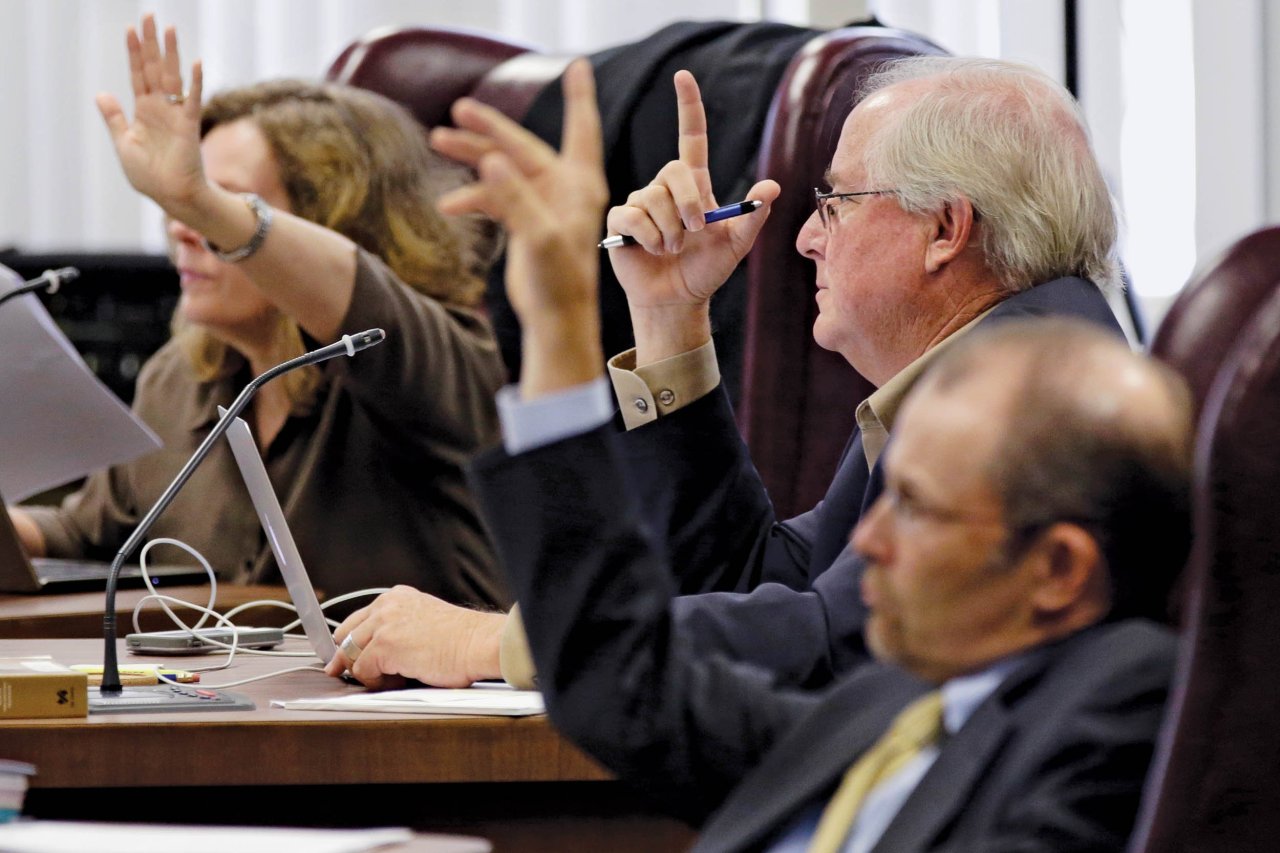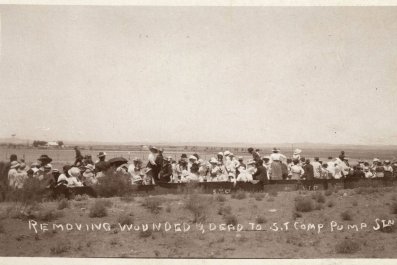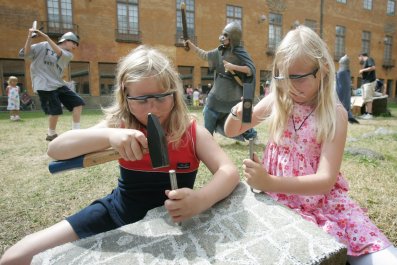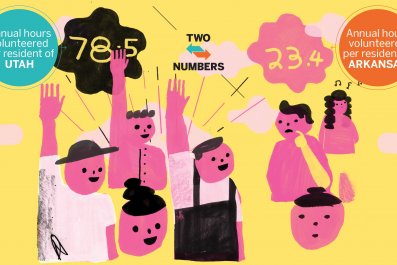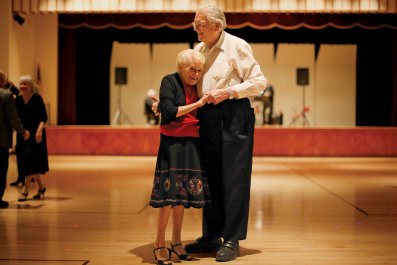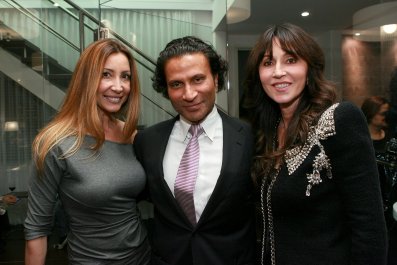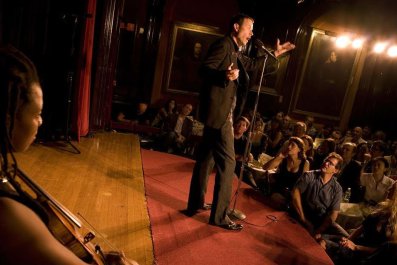It is not elitist to believe your cable guy shouldn't be performing heart surgery. Or that an archaeologist shouldn't be representing the defendant in a murder trial. Or that a lawyer shouldn't be engineering the electrical system of a nuclear power plant.
Each of these activities involves special skill sets honed with years of education and experience. Hopefully, everyone understands that those untrained in specialty fields have no business thinking they are qualified to do the work.
But somehow America has reached a stage where real estate brokers, dental hygienists, restaurant franchise owners, college dropouts turned radio talk-show hosts, journalists, politicians and assorted other flibbertigibbets believe they know more about history, the natural sciences and other forms of scholarship than do those who spent decades earning advanced degrees, conducting original research and consulting with fellow experts on those topics.
Now, I'm sure that I have already raised the hackles of some readers, who even now are reaching for the "E" key on their computers to comment that this story is elitist. So let me be clear: If it is elitist to say that those who are well educated on a particular topic know more about it than those who are not, then you bet I'm elitist. Yes, professional historians know more than you about American history. Yes, professional biologists know more than you about evolution. Yes, professional climatologists know more than you about climate science. To argue otherwise is merely a reflection of the relentless self-worship of the untrained, a rapidly spreading malady that might best be called "the arrogance of ignorance."
I won't deny that plenty of those with high-level educations in specialty fields are insufferable boors, but all those untrained in specialty fields have no business thinking they are qualified to do the work. Somehow America has reached a twisted point in its history in which people educated in specialty fields at our most prestigious schools are routinely derided by the uninformed as fools or traitors trying to bring down the country. Small wonder that former Massachusetts senator (and hopeful future New Hampshire senator) Scott Brown decided it was good strategy in 2012 to dismiss his Bay State Democratic opponent, Elizabeth Warren, as an "elitist Harvard professor," as if having been hired to teach the nation's top law students about bankruptcy was worthy of ridicule.
The latest "experts don't know as much as me" nonsense has emerged in one of the worst places possible: high school textbooks. Over the past few months, a new set of books has emerged from the nation's publishers, the first since the State Board of Education in Texas, driven by political conservatives and Christian evangelicals, adopted standards in 2010 for what should be included in them. And the decisions by Texans don't just inflict this foolishness on Texas kids; because the state is such a huge purchaser of school textbooks, publishers often opt to print whatever the Lone Star State wants for students all over the country.
Now the books based on those standards are out, and, unsurprisingly, history and knowledge have been tossed aside in favor of politics, propaganda and faith. The Texas Freedom Network Education Fund, a group organized to strengthen public schools and counter the influence of the Christian right in education, asked experts—people with doctorates who teach these topics at university levels—to review the textbooks, and their opinions were scathing.
Did you know Moses played a role in the writing of the U.S. Constitution? I didn't. Apparently neither did the Founding Fathers, since he's not mentioned in the Federalist Papers or any other relevant document. But students reading Perfection Learning's new textbook on American history will think Moses was right up there with John Locke and Charles de Montesquieu in influencing Thomas Jefferson, James Madison and their brethren. What role did Moses supposedly play? The textbook claims he contributed the concept that "a nation needs a written code of behavior." Forget the biblical ignorance shown in suggesting Moses provided the code for a "nation" rather than for the Jewish people, who had no nation (failing to reach the Promised Land was kind of key to the Book of Deuteronomy). Forget the legal ignorance in suggesting the Constitution had anything to do with a "code of behavior" rather than establishing democratic government and the rights guaranteed to citizens. Forget the historical ignorance in suggesting that the first laws came from Moses when the sixth Amorite king of Babylon established one of the first written set of laws, known as Hammurabi's Code, hundreds of years earlier.
Saying Moses played a role in the writing of the Constitution because he showed the benefits of having rules is about on par with saying that the caveman who invented the wheel helped design the first automobile. This claptrap was nothing more than a vehicle to sneak religious training into history classes.
That's why the book says the following, grammatical errors and all: "During their years of wandering in the desert of the Sinai, Moses handed down God's Ten Commandments to the Hebrews. These commandments now form the bedrock on which the Jewish, Muslim, and Christian codes of behavior are based. The full account of Moses' life can be found in the Bible's book of Exodus." Yes, a history book is teaching as fact that God wrote the Ten Commandments and gave them to Moses—something that some religious academics who have dedicated their lives to the study of the Bible believe is not a true story. This is not history. It is not even biblical scholarship. It is puerile, gee-whiz religiosity propounded by biblical illiterates to indoctrinate young people while undermining any chance they have of learning how to think like historians.
This is not a conservative versus liberal issue. In 2011, the Thomas B. Fordham Institute, an ideologically conservative think tank that focuses on education, decried the Texas standards on American history as a "politicized distortion" with "misrepresentations at every turn."
The reviews of textbooks conducted by historians for the Texas Freedom Network point up far more than just a few historically absurd and biblically obtuse assertions about Moses. A McGraw-Hill textbook called United States Government regurgitates the right-wing Christian talking point that the Constitution does not include the words "separation between church and state" while ignoring the extensive support for this concept by both Madison and Jefferson, and the rulings of the Supreme Court that all make it clear that such a separation is indeed encompassed by the First Amendment.
Some of the books mislead through de-emphasizing what matters. No one, I hope, would argue that rulings by a lower state court were of greater historical significance than ones on the same issue by the Supreme Court. Unfortunately, students who read the textbookBasic Principles of American Government, published by Perfection Learning, might not know that. In a discussion of—surprise, surprise—the key Supreme Court case on the unconstitutionality of enforced school prayer, the book downplays what the Texas education board doesn't want to hear. For four paragraphs, the book analyzes the case, Engel v. Vitale, by presenting the arguments from lower state court rulings that supported school prayer. As for the Supreme Court decision, the one that actually had an impact on American history, the one that declared it unconstitutional? One paragraph, with virtually no discussion of the logic behind it.
The tomfoolery is boundless. The growth of all international terrorism is caused by Islamic fundamentalism. Islam contributed little to ancient knowledge. Muslims spread their faith through violent conquest, but Christians did not engage in violent conquest. Hindus are strict vegetarians. The government's role in the economy should be restricted solely to protecting the free market. Americans are taxed so much that it's reasonable to joke that the government takes all of their money. Some segregated schools were pretty equal for black and white children. And space aliens would love to come to America because then they could take advantage of affirmative action.
Some experts seem hopeful that this descent into delusion will be undone before too much damage is done. Dr. Edward Countryman, the Distinguished University Professor in History at Southern Methodist University in Dallas and one of the reviewers for the Texas Freedom Network, says, "Eventually, those [Texas Board of Education] standards will be left behind. One can only hope that in the next round of drafting, good historical sense rather than ideology will prevail.... [T]he subject is far too important for ideology to trump all else."
I am not as sanguine. Recently, one of my sons started taking AP United States History, the course taught for high school students who want to take the Advanced Placement test in that subject and possibly earn college credit. I examined the textbook and was quite impressed. It combined text with original documents in a way designed to teach kids how to think like historians. This was not just rote memorization of names and dates and places. Instead, sociology, economics and the roles of both the powerful and the powerless are blended in a way to reveal the tug of history. Students aren't always told what to think—instead, they are asked to examine historical records and explain their own interpretations and conclusions. This is true education.
So, of course, some conservatives are outraged. The College Board, which administers the AP test, recently released a new curriculum framework designed to help high school teachers prepare their students for the test, but there's not enoughrah-rah-rah! for some of the nation's conservatives. They complain that there should be more about great Americans like George Washington and Martin Luther King Jr., people whom these students have already studied extensively—in middle school. There is too much about pre-revolutionary America, which reveals too many of those inconvenient realities about the often violent tensions between colonists and the country's indigenous people. And where, oh where is the celebration of the wonders of America?
The Texas Board of Education has already come out against the AP course. The Republican National Committee attacked it. And across the country, in legislatures and school boards, conservatives have groused that they want to change the curriculum to better reflect their vision of America. Conservatives in Jefferson County, Colorado, recently took over their school board and announced they are forming a curriculum committee to review educational materials, starting with this newfangled AP U.S. History approach. The curriculum, designed with the assistance of historians from top universities and colleges, will now be reviewed by a group of untrained laypeople, to make sure that "theories are distinguished from facts.''
And the intent of an advanced history education should not just be to learn how to think and analyze information. No, according to the committee description, "materials should promote citizenship, patriotism, essentials and benefits of the free enterprise system, respect for authority and respect for individual rights."
The board member leading the charge is Julie Williams, a graduate of Front Range Community College in Westminster, Colorado, who works as the manager of a dental office. "We shouldn't be encouraging our kids to think that America is a bad place,'' Williams said in an interview with Chalkbeat Colorado. "When [the course questions] our American values and leaves out so many of our Founding Fathers, that's concerning to me."
Nothing against dental office managers: This is a fine career that I probably couldn't do well. And nothing against community colleges, which have helped untold millions of Americans gain an affordable and practical education. But I doubt Williams believes it would be fine for a Richard Hofstadter, a David McCullough or some other renowned historian to show up at her office and start drilling teeth. Yet she and her unqualified allies have no qualms about sitting in judgment on whether professional historians know what they are talking about.
Perhaps these people who see themselves as protectors of the truth about America might be aided with a little history lesson. A publishing company, Shestakov AV, had prepared a textbook that explored history according to social and political genealogy. Because of this scholarly approach, certain historical figures were examined in depth, while some others were largely ignored. National heroes were at times portrayed in a negative light.
The politicians were not happy. Months before the textbook's release, the editors at Shestakov received a letter from two legislators demanding changes for the purpose of "strengthening throughout the [textbook] elements of patriotism and love for" the nation. This was to be accomplished not by simply making statements but by avoiding theories and instead focusing on "the facts" that unquestionably proved the country's greatness.
The words could have been taken straight out of the mouths of conservatives on the Texas Board of Education, or in Jefferson County or at the Republican National Convention. But they were uttered by none of them.
Instead, this comrade-in-arms with modern American conservatives was an actual comrade: Andrei Alexandrovich Zhdanov, a politician in the Soviet Union who, on behalf of Stalin, was taking the first step in airbrushing Russian history to make it more celebratory.
It would take decades until the Zhdanovs were finally pushed aside and Russian children were once again allowed to learn about their nation and their world without so much political interference. Let's hope it doesn't take America as long to stop confusing the study of history with flag-waving and prayer.



